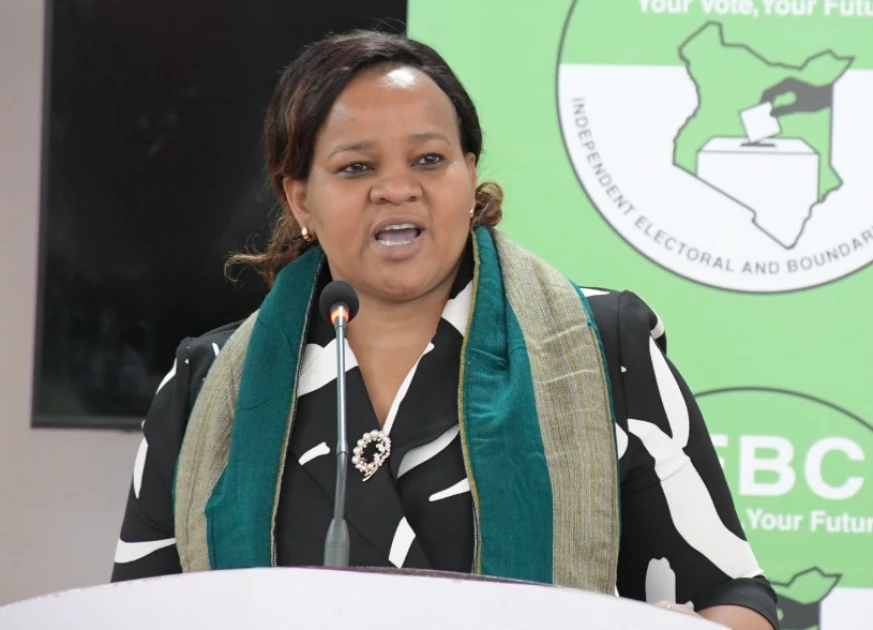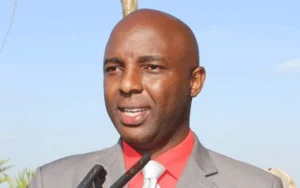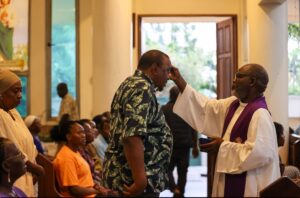Explosive revelations emerged from the National Dialogue Committee (NDC) yesterday, shedding light on the resignation of four former Independent Electoral and Boundaries Commission (IEBC) commissioners, known as the Cherera Four, who claimed they were forced to quit their positions following the 2022 elections.
In a dramatic presentation before the committee, the former commissioners raised serious concerns about the electoral process and its aftermath.
Read also: Chebukati Resurfaces, Defending the Credibility of 2022 Election Results
Former Vice Chair Juliana Cherera, along with ex-commissioners Francis Wanderi, Justus Nyang’aya, and Irene Masit, asserted that their resignations were not voluntary. They alleged that their decision to question the presidential election results led to their departure from the IEBC.
![Immediate former IEBC commissioners Justus Nyang'aya and Francis wanderi give their views during a meeting with the National Dialogue Committee at the Bomas of Kenya on September 26, 2023. [Photo/Courtesy]](https://news.switchtv.ke/wp-content/uploads/2023/09/Immediate-former-IEBC-commissioners-Justus-Nyangaya-and-Francis-wanderi-give-their-views-during-a-meeting-with-the-National-Dialogue-Committee-at-the-Bomas-of-Kenya-on-September-26-2023.jpg)
Wanderi, in a direct speech to the committee, stated, “It was the commission’s responsibility to tally and the chair, Chebukati, to declare the results. Unfortunately, we were not allowed to do that.”
He further revealed that they were never provided with “form 34C,” which is a crucial document containing the summary of presidential results from all constituencies.
Masit, who is currently residing abroad due to security concerns, emotionally shared her experience.
“I am from the Rift Valley, and they say that I betrayed the President. I have never gone to my home,” she disclosed.
She also mentioned receiving threats, prompting her to leave the country in fear for her safety.
Cherera, who also lives abroad for security reasons, expressed how her family bore the brunt of the political turmoil.
“My last born is 7 years old. It was bad even in school. Our social life really changed. It was bad for my children and my family,” she stated.
![IEBC Vice Chairman Juliana Cherera address a press conference on August 15th 2022 at Serena Hotel. [Photo/Chris Omollo]](https://news.switchtv.ke/wp-content/uploads/2023/09/Cherera-1200x675.jpg)
The Cherera Four had rejected the presidential election results announced by IEBC Chairman Wafula Chebukati on August 15, 2022, citing discrepancies and irregularities in the final tally.
They had also filed affidavits in support of an unsuccessful petition challenging President William Ruto’s win at the Supreme Court.
Wanderi urged the adoption of a system similar to Ghana’s, where the chair has two deputies serving as full-time accounting officers to enhance transparency.
The quartet emphasized their desire for an in-depth analysis of the election results.
“Upto now we don’t know the results, and it’s important that we audit these results because when we audit it will be fair for everybody including those who lost,” Masit asserted.
Cherera added, “Let’s allow an in-depth analysis because we want the next Commissioners to be handled with integrity, and their voice will not be shut down.”
Governor Cecily Mbarire, deputy delegation head of Kenya Kwanza, questioned the timing of the revelations, to which Wanderi responded, “We’re just explaining what happened, where there are issues let the committee pick them up and deal with it.”
Former IEBC Chairperson Wafula Chebukati, along with former Commissioners Abdi Guliye and Boya Molu, declined to appear before the committee, claiming that doing so would “betray IEBC staffers who were tortured and murdered, as well as rubber-stamp impunity.”
They argued that the issues had already been resolved through legal processes and expressed concerns about the potential negative impact on the Constitution.
Subscribe to Switch TV
The Cherera Four’s allegations have added another layer of complexity to the post-2022 election scenario, with calls for further investigation into the electoral process gaining momentum.
The National Dialogue Committee, a 10-member body established to mediate between opposing political factions, continues its efforts to address these contentious issues and promote transparency in Kenya’s electoral system.
















